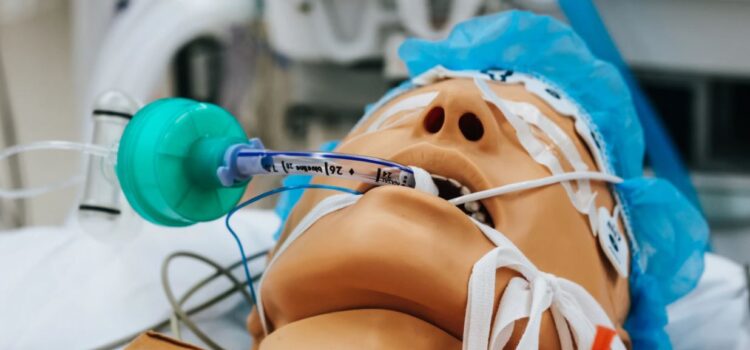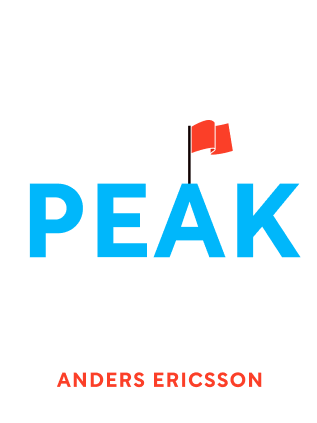

This article is an excerpt from the Shortform book guide to "Peak" by Anders Ericsson. Shortform has the world's best summaries and analyses of books you should be reading.
Like this article? Sign up for a free trial here .
Why is simulation training so important? Why is a hands-on approach to learning better than a didactic or knowledge-based instruction?
In professions where hands-on training is not feasible, such as training to be a fighter pilot or learning to be a surgeon, simulation training is essential. Studies show that knowledge-based learning is not as effective as hands-on practice.
Keep reading to learn why simulation training is more effective than lectures.
Deliberate Practice in Your Professional Life
So far, we’ve been analyzing the performances of individuals in elite or esoteric fields—classical music, blindfold chess, digit memorization. Obviously, most of us aren’t trying to be orchestra musicians, chess masters, or digit memorization champions. But you can apply the principles of deliberate practice and mental representations to many everyday fields to improve your performance. In time, you can improve to the point where you can train others and bring them up to your level of performance—strengthening your entire organization.
Simulation Training
A good way to employ purposeful practice in the professions is to allow people to practice their skills in a mock scenario using simulation training. They can practice over and over again, receive lots of feedback, and perfect their skills without the usual costs of failure.
The U.S. Navy’s Top Gun Program was established in this spirit, allowing fighter pilots to hone their shooting skills in a simulated environment (without actual missiles or bullets) and push themselves right up to the edge of failure, without having to worry about actually killing or dying, as they might in a typical air battle. The program was a great success, substantially increasing the “kills-per-engagement” statistics of the pilots who participated in the program.
These sorts of simulation trainings are particularly effective in fields where there is a real life-and-death cost of failure. You want professionals to be able to practice effectively and frequently, without the training itself carrying the potentially severe costs of failure. Military technique is one such field. Another is medicine.
In diagnosing breast cancer, radiologists are tasked with interpreting x-rays to determine whether or not cancerous cells are present. Their task is made all the more difficult by the fact that they seldom receive effective feedback on their diagnoses. Cancer is typically present in only a very small percentage of mammograms—four to eight out of every thousand.
And even when a radiologist does identify cells that might be cancerous, those results are usually sent to the patient’s personal doctor; the radiologist isn’t usually told what the final results of the biopsy are, so they don’t know if their analysis was correct or not. Based on what we know about how deliberate practice works, this is not a recipe for improved performance. And the evidence does indeed suggest that radiologists typically don’t improve with more experience.
Peak author Anders Ericsson suggested a way to correct this, by establishing a digital library of past mammogram images from patients whose subsequent medical history was known—whether or not they ultimately developed breast cancer, and if they did, how the disease progressed. This library could then be turned into a training tool for radiologists, in which they could look at the images to determine whether or not they represented the tissue of a patient who had cancer—and receive immediate feedback on the accuracy of their analysis. Such a simulation training has been set up for radiologists in Australia, as well as a similar one in New York for pediatric ankle x-rays. Happily, these programs have proven successful in increasing the accuracy of the doctors’ diagnoses.
Simulation training modules could be applied across a wide variety of fields, from tax accountants to government intelligence analysts. They could be tailored to suit the needs or challenges of different fields and even different individual practitioners. They could be designed to address the most common and dangerous errors, training practitioners to focus their energies on those and develop effective mental representations for overcoming them.
Knowing vs Doing
Deliberate practice is about action—what you’re able to do is more important than what you know. Indeed, this gets at the heart of what makes deliberate practice unique: it’s about building skills, not knowledge. This sets it apart from most other theories of teaching, which place their emphasis on knowledge, which is much easier to impart to students than skill-building. But deliberate practice gives primacy to improving actual performance with a hands-on approach.
The lack of skills-oriented deliberate practice has real consequences, particularly in the medical field. Much of the education future doctors receive in medical school, internships, and residencies is purely knowledge-based. This process alone can take up to 15 years. And while the knowledge they gain through these years of schooling is undoubtedly important, little of this education is focused on the actual practice of medicine—only comparatively late in this process will they receive a hands-on approach.
Once they become full-fledged doctors, they are deemed to have received all the training and skills they need to treat patients and can begin practicing medicine. But their practice of medicine is usually routine and undifferentiated: they are doing the same tasks over and over again, receiving little feedback, and not engaging in much that will actually teach them new skills or challenge them to refine existing ones.
Therefore, it is unsurprising that one study found increased experience in practicing medicine to have no positive effect on performance—in fact, older doctors were less knowledgeable and performed worse than younger doctors with fewer years of experience. Clearly, the “practice” that medical professionals receive in the course of their day-to-day work is ineffective. Another study, at the University of Toronto, found that the most impactful programs for sharpening and developing the skills of practicing doctors were those that took a hands-on approach—role-play, simulation, discussion groups, and hands-on clinical training.
The least effective programs, meanwhile, were those focused on didactic or knowledge-based instruction, usually involving doctors sitting at a conference and listening to a lecture. These offer little opportunity for feedback and correcting mistakes. Unfortunately, such programs are what much of the medical profession’s “continuing education” consists of.
Building Expertise Quickly
We can see these principles in action in a study that examined the performances of surgeons specializing in the treatment of prostate cancer. The results confirmed the value of hands-on practice. Relatively inexperienced surgeons saw cancer reappear in their patients at nearly double the rate of surgeons with more experience. The specific experience gained in performing hundreds or even thousands of prostatectomies had honed the expert surgeons’ skills to the point where there was a marked difference in their patients’ health outcomes.
The clear benefits of practical experience in a field like surgery, which requires the utmost precision of technique, are obvious. One study of laparoscopic surgeons attempted to discover what their thought processes were when they made their decisions in the course of surgery. The actual surgery rarely went exactly according to plan—there were always unexpected developments that arose during the course of the procedure that required the surgeons to think on their feet, come up with alternatives, and reevaluate their approach. Their mental representations were critical: having a complete mental map of the surgery enabled these practitioners engage in adaptive thinking and come up with creative solutions.
Training programs in such fields should be based in deliberate practice, helping surgeons attain expert status as quickly as possible so they can reach the level of adaptive thinking. Such endeavors should also make an effort to understand the mental representations used by the acknowledged experts in a field.
Although there are many conceivable measures by which a surgeon’s performance might be measured, it is certainly possible to identify at least those surgeons whose performances and results are consistently better than those of their peers.
Although the details of their responses were specific to the context of laparoscopic surgery, the main takeaways are universally applicable—the surgeons developed mental representations or roadmaps of the environment inside the patient’s body, recognized unexpected situations, evaluated possible responses to those situations, and selected the best one. Adaptive thinking is critical, but it can only come from the experience and skill-building that deliberate practice and effective mental representations produce.

———End of Preview———
Like what you just read? Read the rest of the world's best book summary and analysis of Anders Ericsson's "Peak" at Shortform .
Here's what you'll find in our full Peak summary :
- How to become an expert in any field you choose
- Why practice isn't enough because you need to change how you practice
- Why natural talent isn't enough and practice is more important






